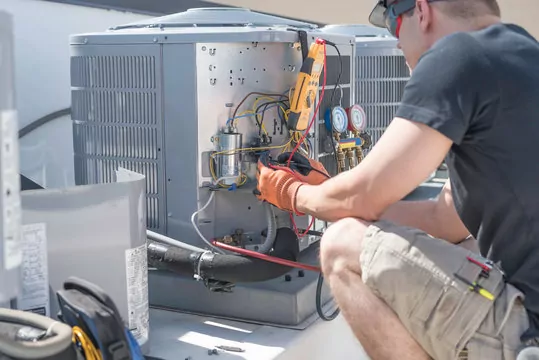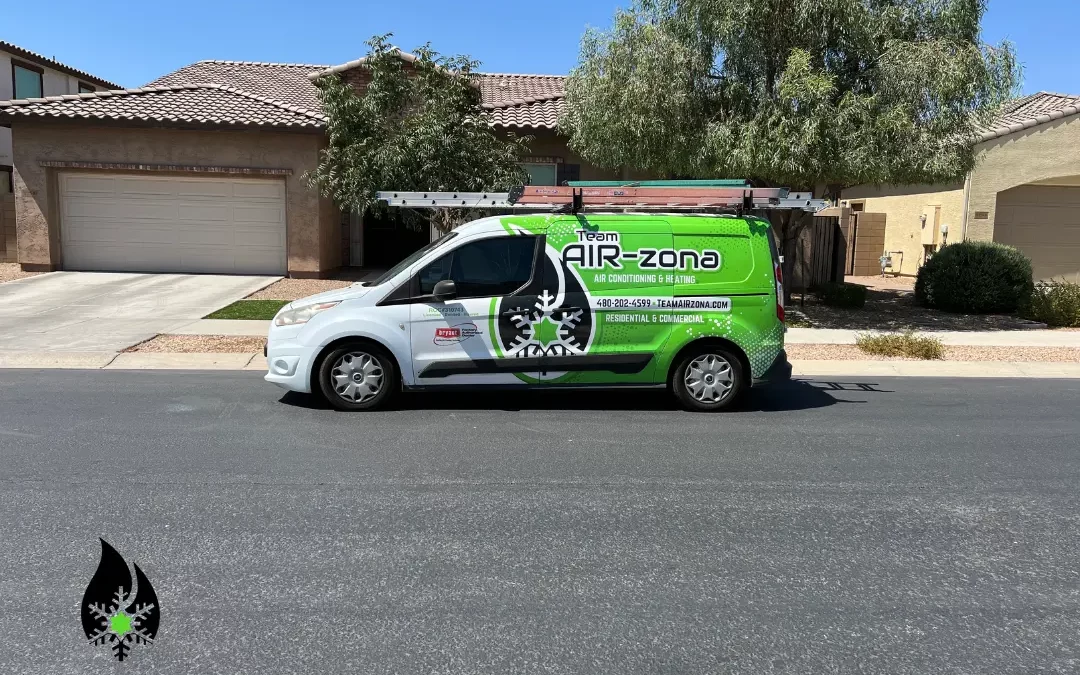Some consider the air conditioner to be the greatest invention of the 20th century. And we’d have to agree! Air conditioners are among the most common electrical appliances for homes in the U.S., and they’re a standard feature in 75% of American homes.
Buying your next home air conditioning or heating appliance can be quite an investment. Even more, air conditioning can consume a large portion of your energy bill. Choosing the right air conditioner for your lifestyle will result in an efficient home cooling system, complete with reduced energy consumption and maximized comfort.
There are several main types of air conditioners currently available on the market. By choosing the one that was designed with your space in mind, you can cut down on your monthly cost while extending the life of your appliance.
Central Air Conditioner
A central air conditioning unit cools your home with a split system that pushes air through ducts installed in your home. For this reason, central air is also referred to as a ducted system. The split system contains two main units, outdoor and indoor. The outdoor air conditioning unit carries the condenser and compressor. The indoor unit holds the air handler and evaporator coils. Central air conditioning systems remove heat from your home by using refrigerant. The unit pulls the heat outside and cycles cool air into the ducts.
This cooling system is a great choice for larger homes or those that want to cool several rooms simultaneously. Since the air is regulated, you may notice less humidity. But since this method is not the most energy-efficient, you may notice higher energy bills, too.
Ductless Mini-Split
Ductless mini-split air conditioning units cool your home via indoor mounted wall units equipped with air blowers. These typically include an outdoor unit and one or more indoor units. The units are connected by tubing, regulating the refrigerant and circulating the cold air.
Ductless systems are the popular choice for modern homes. Ductless air conditioning units provide better efficiency and control over the temperature of different areas of your home. Most units can be used for both heating and cooling. Since the indoor units are compact and are designed for one room, this cooling system can get expensive if you’ve got a large family.
Window A/C Unit
Window air conditioning units are an excellent personal option to cool your space. Window air conditioners are comprised of a single unit, generally installed in a window. The unit directs hot air outside while pushing cold air inside. Window air conditioners have filters that can be regularly removed and cleaned to guarantee high-efficiency operation. The temperature can be controlled by buttons on the unit.
Window units have been around for a while, and it should be no surprise that they’re the most common type of air conditioner. They’re a great choice if you just want to cool one room, as in a shared living situation. This cooling system is generally cheaper to operate and easier to maintain than other options. The downsides: they can be noisy or visually unappealing, plus they require an electrical outlet nearby.
Portable A/C Units
Portable air conditioners are comparable to window units. Although they are single units, portable units are free-standing and can be easily moved from one location to another. These compact units push hot air outside via a single or dual hose.
Portables are designed for temporary space cooling or smaller spaces in which a split air conditioner or window unit couldn’t be installed. Portable units come in a variety of sizes; some reviews mention using them in kennels or bathrooms. Portable air conditioners require a power outlet and a nearby window for exhaust. Keep in mind that the evaporator fan can get noisy.
Floor Mounted Air Conditioner
The floor mounted system is the fastest at cooling a room. Floor mounted air conditioners are similar to the mini-split but take up less space. The indoor units are installed about six inches from the floor and connect to the outdoor unit through a hole in the wall. Whereas the wall mounted system can be inefficient or inconsistent, a floor mounted unit pushes the cooler air to standing level.
Floor mounted units are designed for convenience and accessibility, making them the preferred option for the elderly and those with respiratory problems. Since the air filters can be easily changed out, floor mounted units are generally associated with cleaner or improved air quality.
Dual Fuel Air Conditioner
A hybrid or dual fuel air conditioning system combines the power of a gas furnace with the convenience of an electric heat pump to result in the most cost-efficient and high-performing cooling system. The hybrid system switches between using fossil fuels and electricity, depending on your presets or the temperature outside. The heat pump pushes the hot air outside during the hot months. In the colder months, the heat pump instead redistributes heat from the furnace throughout your home.
The hybrid option is a great way to get the best of both worlds. With a dual fuel air conditioning system, you can lower your carbon footprint while enjoying the luxuries of indoor air conditioning. While the efficiency could reduce your utility bill, installation can get pricey.
Smart Air Conditioner
Smart air conditioners can be window units, mini-splits, or portable. But smart air conditioners are connected to Wi-Fi and offer smartphone capabilities like scheduling, geofencing, temperature range control, and other features aimed to maximize convenience and efficiency.
Geothermal Air Conditioner
Geothermal air conditioning generates power by harnessing the insulation properties of our earth. Geothermal technology takes the heat from six feet underground (where higher temperatures stay consistent throughout the year) and uses the energy to cool your home. Geothermal cooling systems consist of looped piping that runs water from your home into a heat pump, before circulating it underground.
When considering your next cooling appliance, there are a few factors that can help you determine the best fit. After you’ve explored the benefits and drawbacks of different types of air conditioners, remember to keep your budget and energy consumption in mind. Take into consideration the cooling power and maintenance requirements of each system. Contact us today and our expert technicians will be happy to review your options with you.





